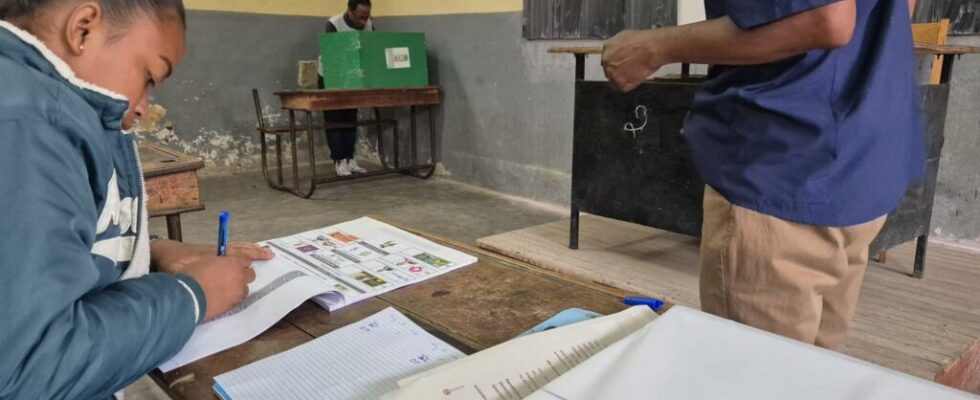More than 11 million voters are called to vote this Wednesday in Madagascar to renew the representatives of the country’s 1,695 municipalities, mayors and municipal councilors. Politically, this election – the third and last of a one-year electoral cycle – promises to be crucial. For the opposition, which hopes to maintain or gain control of other strategic cities, this election is the last chance to exert influence against the regime. For its part, power has the possibility of consolidating its hegemony. The polling stations were supposed to open at 6 a.m. this morning but there were delays and tension in some stations.
3 mins
with our correspondents in Antananarivo, Pauline Le Troquier And Sarah Tétaud
In the capital, some offices opened on time, with the population sometimes even queuing, as in the Upper Town. But this is not the case everywhere. Thus, a stone’s throw from the large Analakely market, in the 12 polling stations of the Jean-Jacques Rabearivelo public high school, the voting started a little late, after 6:20 a.m. And above all, in a climate of great tension. There were a few clashes, even before the polls opened, between voters and poll officials.
And for good reason: in several offices, official procedures were not followed. A fokontany chief present giving instructions or office heads absent. But it is above all the signing of the famous single ballot, the one which will allow this evening to officially validate the number of votes obtained for each candidate which has caused the most excitement here: this famous document was pre-signed, without a draw lot between accessors has taken place.
Enough to really heat things up at the start of the election morning. Furious, one lady protested that “ the whole process was already flawed. How do you expect us to still believe in this vote! »
“ We are in a Putin-style coup regime that does not speak its name » another voter said to me. “ A regime of fear where we can no longer denounce anything “.
Calm returned around 7 a.m. but the atmosphere remained tense.
What are the issues for this election?
These municipal elections are the third and final vote in a one-year electoral cycle (after a presidential and legislative elections). With a National Assembly and a Senate already committed to his cause, will President Andry Rajoelina have the clear horizon to govern without division? In any case, the government has given itself the means to see such a scenario come true by lining up candidates in almost all of the 1,695 municipalities on the island, including around 70 without a competitor.
If it led a vigorous campaign in almost all the municipalities of the country, the Irmar presidential coalition concentrated its forces in the big cities. Some of them, opposition strongholds, concentrate the risks of destabilization for the regime. They could be the starting point for demands if social anger were to explode, fueled by inflation, water and electricity cuts.
For its part, the opposition, which boycotted the presidential election a year ago, failed to take its revenge at the polls during the legislative elections last May. Despite its disintegration in recent months, it still hopes to win the capital and retain or reconquer other large strategic cities in the provinces because it is at stake both for its survival and its credibility for the five years to come. In a country where decision-making power remains very centralized, and where the capital is renowned as a springboard to the presidency, the case of Antananarivo crystallizes its hopes of revenge.
Just like the irregularities, already denounced, participation will be closely scrutinized today. If each camp tries to create a stir among its electorate, the mobilization promises to be timid. In 2019, during the last municipal election, 59% of voters abstained.
